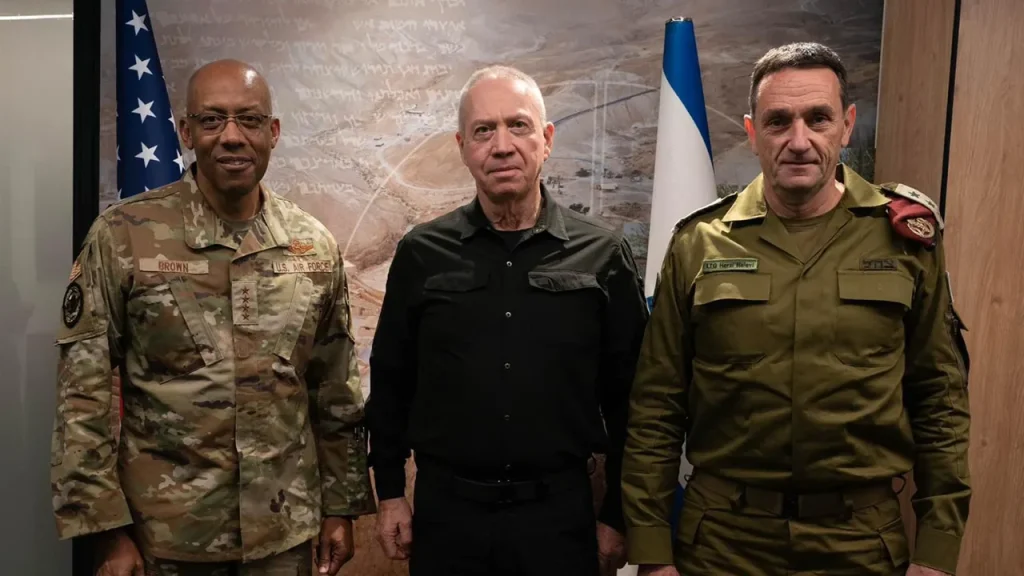In a recent strategic briefing, Israeli Defense Minister Yoav Gallant emphasized the need to expand Israel’s goals in the ongoing war in Gaza to include returning Israelis to their homes in the north. Following attacks by Iran-backed Hezbollah in Lebanon, many northern communities were evacuated, and Gallant asserted that the main objective now should be to ensure their safe return. To achieve this, he plans to bring this issue before Prime Minister Benjamin Netanyahu and the Cabinet, despite the ongoing focus on dismantling Hamas and returning hostages.
The conflict was sparked by Hamas’ assault on southern Israel on October 7, leading to escalated fighting across the Israel-Lebanon border. Hezbollah’s involvement in opening a second front against Israel has further complicated the situation, raising concerns of a potential regional conflict. As a result, many border towns in northern Israel were evacuated for safety reasons, and residents have yet to return due to the ongoing hostilities. Gallant’s discussion with IDF officials included a review of Israel’s achievements so far in Gaza, where the ultimate aim remains toppling Hamas and securing the release of Israeli hostages.
The efforts to widen the goals of the war reflect a strategic shift in Israel’s approach, moving beyond the immediate threat posed by Hamas in Gaza to address the broader regional challenges. By prioritizing the safe return of Israelis to their homes in the north, Gallant aims to prevent further displacement and ensure stability in the region. This shift in focus does not diminish the commitment to dismantling Hamas or securing the release of hostages, but rather seeks to address the multi-faceted nature of the conflict and the various threats Israel faces from different actors.
The involvement of Iran-backed Hezbollah in the conflict has raised concerns about the potential for a wider regional conflagration, with the risk of escalation increasing as fighting intensifies on multiple fronts. The situation highlights the complex geopolitical dynamics at play in the Middle East, where proxy conflicts and overlapping interests contribute to a volatile security environment. By expanding its goals in the war to include the safe return of Israelis in the north, Israel acknowledges the need to address the broader implications of the conflict and secure its population against threats from multiple sources.
The task of reconciling the various objectives in the war, from dismantling Hamas to securing the release of hostages and ensuring the safe return of Israelis to their homes, is a formidable challenge that requires careful planning and coordination. Gallant’s proposal to widen Israel’s aims in the conflict reflects a recognition of the evolving nature of the threat environment and the need for a comprehensive approach to address the root causes of instability. This strategic shift marks a significant development in Israel’s military campaign and highlights the importance of adapting to changing circumstances in a complex and volatile region.
As the conflict continues to unfold, with Hamas and Hezbollah continuing to pose threats to Israel’s security, the need for a coherent and effective strategy to address the multiple challenges remains paramount. By expanding its goals to include the safe return of Israelis to their homes in the north, Israel demonstrates a commitment to protecting its population and ensuring stability in the region. The ongoing conflict underscores the need for international cooperation and diplomatic efforts to de-escalate tensions and prevent further violence, while also addressing the underlying causes of the conflict to pave the way for a lasting peace and security in the region.


